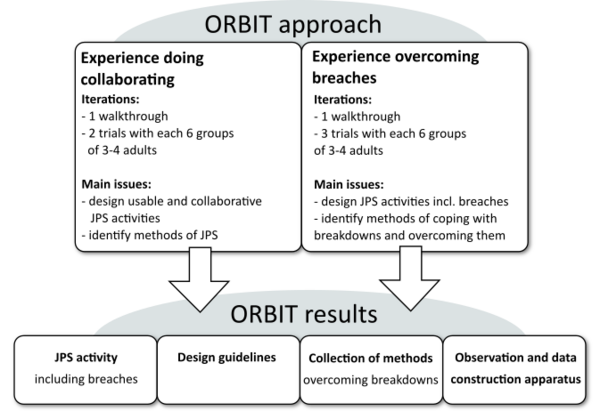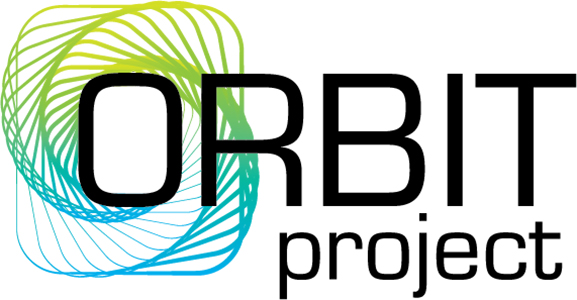What are the methods used in the framework of the research project Overcoming Breakdowns in Teams with Interactive Tabletops (ORBIT) and what are the expected outcomes?
Combining user centered design with ethnomethodology and conversation analysis
Having both analytic and design components that are closely interwoven, ORBIT adopts a design-based research approach. More precisely, the project team relies on an ethnomethodological conversation analytic informed approach (fine-grained video analyses, establishment of collections) and user centred design methods (prototyping, multi-disciplinary design workshops, walkthroughs).
Both approaches are rooted in a shared methodological credo. To understand human interaction and the use of technologies, conversation analysis rigorously examines the participants’ perspective and user centred design takes as point of departure how the users interact with technologies.
Seven iterations in two different contexts
The ORBIT problem-solving activity will be implemented in two different settings: with in-service teachers during of a workshop on “collaboration”, and with municipal staff members in the context of their professional trainings on soft skills and diversity.
The tabletop-activity will be based on group-worthy tasks whose difficulty will increase as the participants progress.
- In a first phase, participants will, for example, have to discover how to steer an unknown vehicle demanding them to simultaneously operate several control devices (materialized by widgets). The process of mastering the steering of the vehicle will provide participants with a shared experience of successful joint problem solving.
- In the subsequent phase the difficulty of the problem is increased by implementing supplementary challenges to be overcome by the participants to complete the task successfully. Coping successfully with the dynamics of the designed problem requires the participants to rely on multiple resources, create a joint focus, work interdependently, exchange ideas and information, and co-construct a shared understanding.
The design process will use seven iterations (two walkthroughs and five trials), which progressively deal with a different focus and related sub-activities of the tabletop activity. The five trials will be video-recorded from different angles and perspectives generating approximately fifteen hours of video data. The videos will be searched to identify relevant sequences (accounts of collaboration, accounts of breakdown) and the findings will feed back into the design process.
Expected outcomes of ORBIT
The project will result in the design joint problem solving activity of high usability and supporting learning to collaborate. In this vein, ORBIT will develop and refine design guidelines to support the design of similar activities. Furthermore, it will contribute to the construction of a theoretical and methodological framework regarding the analysis of collaboration processes in a digitally mediated environment.
In brief, graphically speaking: what is ORBIT all about?

